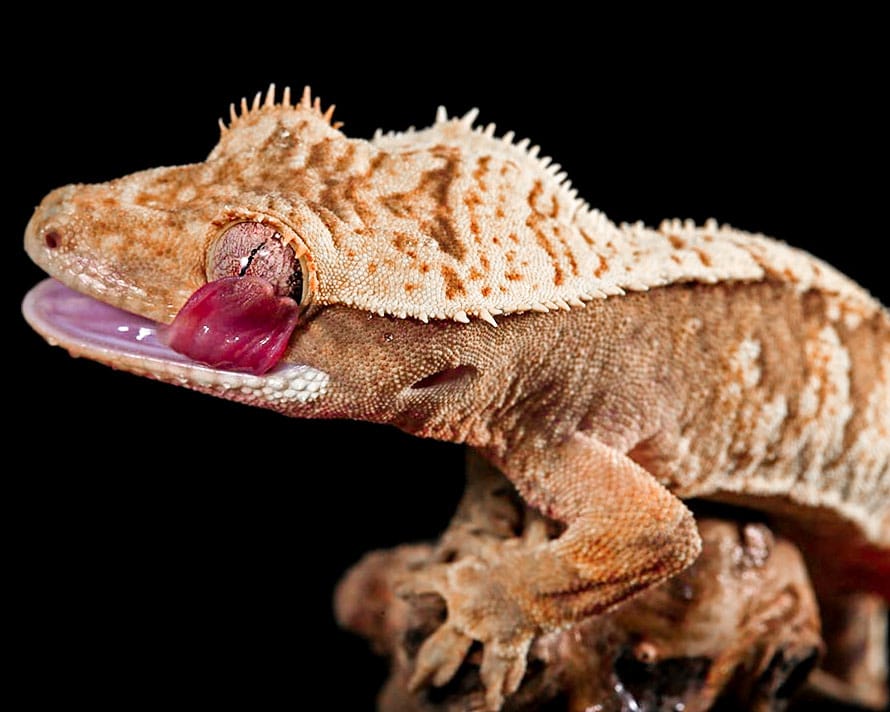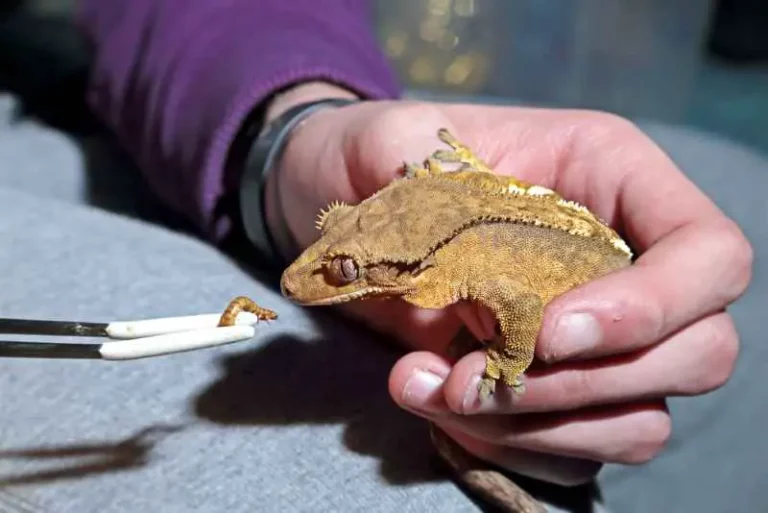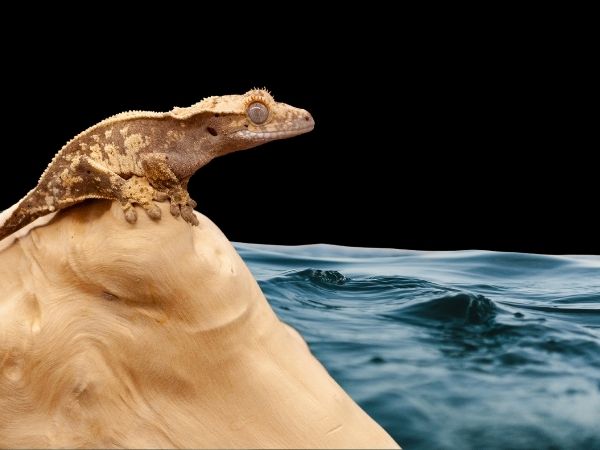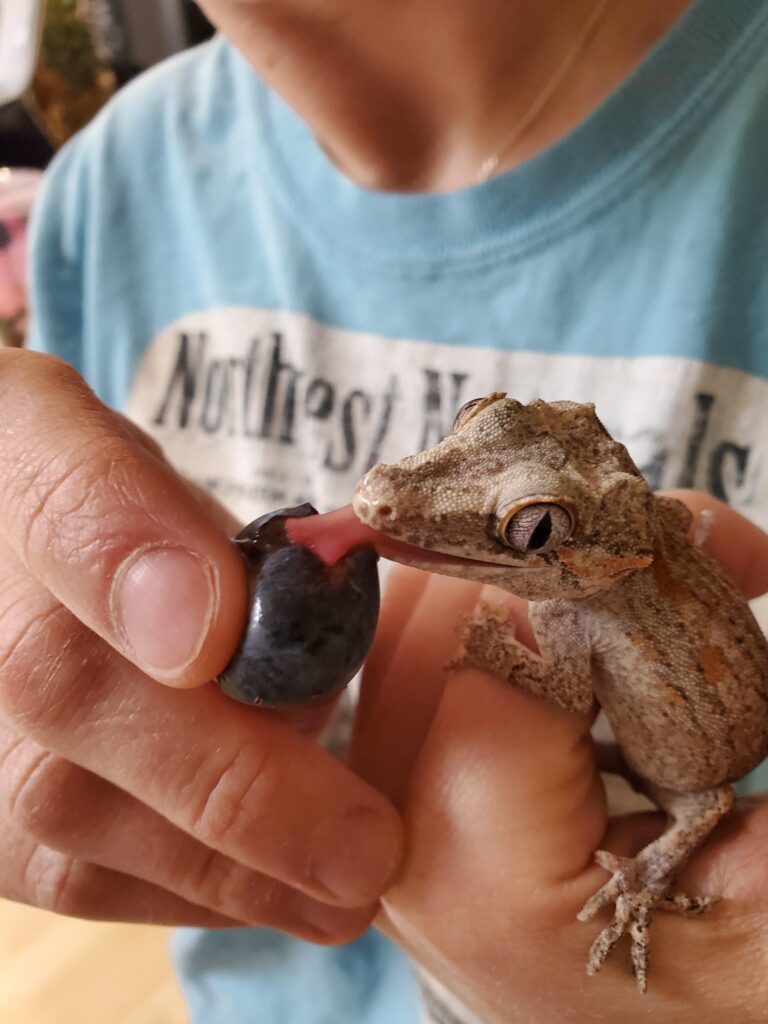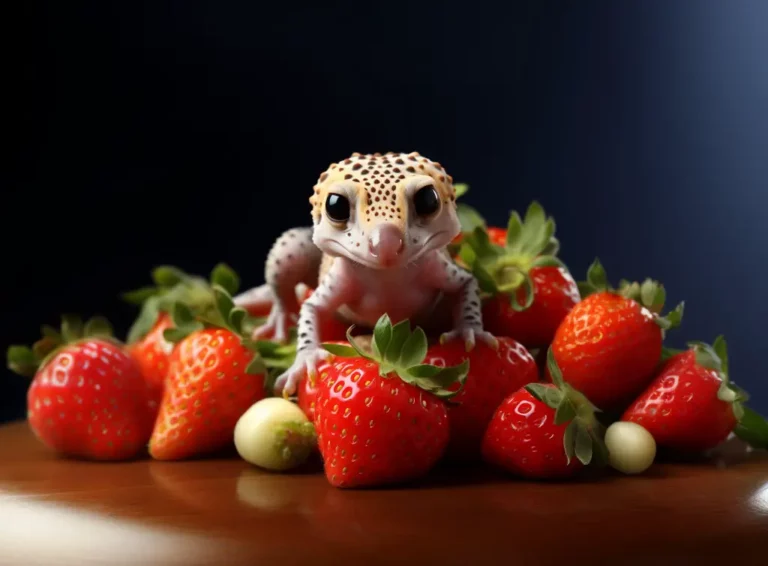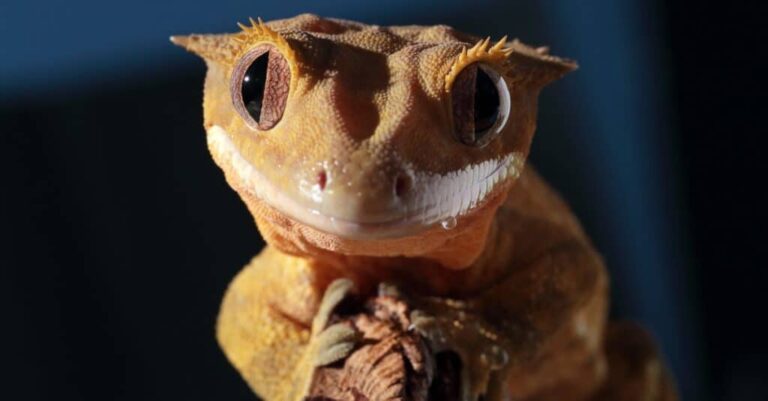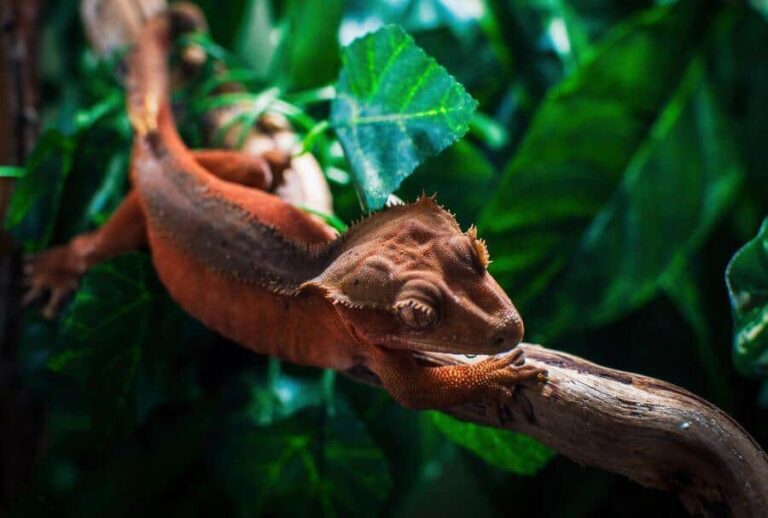Do Crested Geckos Sleep with Their Eyes Open
As a devoted crested gecko enthusiast, I once found myself marveling at the quirky behaviors of my scaly companion. Among the many questions that danced through my mind, one peculiar curiosity stood out: do these charming reptiles truly sleep with their eyes open? It was a question that ignited my journey into the intriguing world of crested gecko slumber.
Yes, crested geckos sleep with their eyes open because they don’t have eyelids. When they snooze during the day, their pupils become small slits to keep the light out, like a built-in curtain.
Join me as we delve into the captivating realm of crested geckos and unveil the secrets behind their unique sleeping habits
Crested Gecko Sleeping Habits
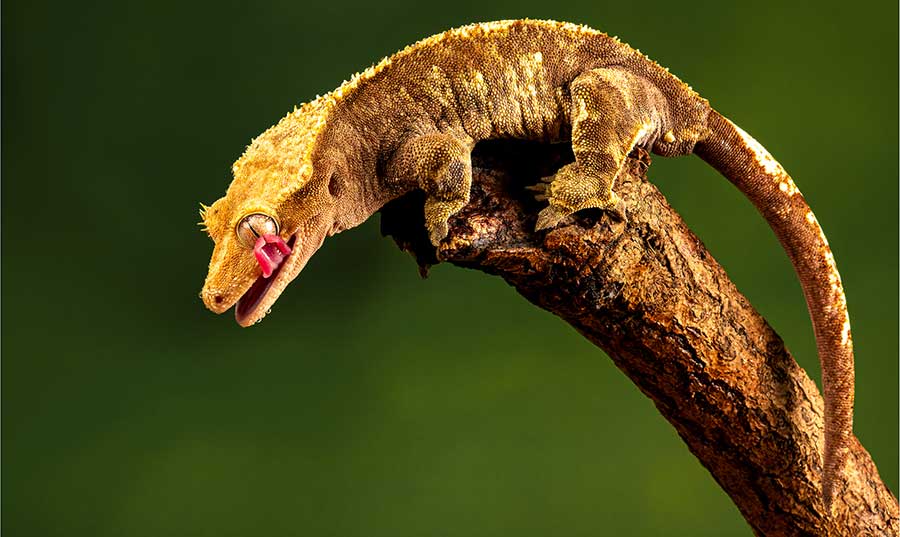
Crested geckos, like most of their gecko relatives, are predominantly nocturnal creatures. Interestingly, these enigmatic reptiles engage in a rather unique slumber pattern, snoozing with their eyes wide open. A crested gecko’s sleep regimen typically encompasses a generous 12 hours of rest per day.
But, this extended period of repose is frequently divided into shorter, intermittent intervals, consisting of 3 to 4 hours of slumber interspersed with brief bouts of activity. These fleeting moments of wakefulness punctuate their day, ultimately accumulating to the recommended 12-hour sleep quota. They diligently pursue their nocturnal endeavors, allocating precious little time to rest before the advent of daylight.
In their natural habitat, these remarkable creatures strategically seek refuge during their diurnal downtime, often nestled beneath leaves or concealed within crevices of tree bark. This innate behavior safeguards them from potential predators lurking in the wild. While captivity may shield them from such threats, their instinctual inclinations persist.
In the confines of a terrarium, your pet will choose its preferred slumber locale, which may include:
- Secluded spaces beneath artificial tree bark.
- Concealed within imitation hides.
- Nestled between or beneath the leaves of terrarium plants.
Yet, even within the comfort of their terrarium, they occasionally exhibit a penchant for sleeping beyond their boundaries. These curious creatures may occasionally be observed:
- Adhering to the terrarium walls in slumber.
- Perching atop the dangling foliage of terrarium plants.
- Drifting off while suspended from branches, occasionally even adopting an upside-down slumber position.
It’s worth noting that your crested gecko may modify its sleeping posture and location, reflecting its evolving comfort levels and preferences.
Recognizing When Your Crested Gecko is Asleep
However, during their peaceful repose, these reptilian creatures exhibit distinct telltale signs:
Pupil Constriction: Their pupils undergo a transformation, contracting into small, vertical slits while they indulge in their nocturnal dreams. This alteration serves to restrict the ingress of ambient light, ensuring a serene sleeping environment.
Crest Posture: The distinctive crest, a hallmark feature of them, undergoes its own metamorphosis during sleep. When these captivating creatures slumber, their crests naturally assume a gentle sagging position, a visual indicator of their tranquil repose.
Eye Depiction: An observant eye will notice a slight indentation or sinking of the eyes while it rests, distinguishing this state from its attentive wakefulness.
Why Crested Geckos Sleep with Open Eyes
Crested geckos have a unique way of sleeping – with their eyes open. It might seem strange, but it’s because they’re different from animals like us.
These don’t have regular eyelids like we do. Instead, they have see-through scales that protect their eyes. Imagine their eyes are always covered by a thin, transparent curtain. So, even when they’re asleep, they can still sort of see through it.
Because of this special eye covering, they don’t really have a choice but to sleep with their eyes open.
Further, when it’s time for them to rest, they prefer to hide or find a cozy spot. This helps them avoid too much light and makes them feel safe. Also, they are naturally cautious animals, and they want to be protected while they sleep.
Sometimes, you might see them licking their eyes. This is their way of keeping those see-through scales clean and clear. And you might have noticed that they don’t blink like we do, and that’s because they don’t have regular eyelids.
How Crested Geckos Sleep with Open Eyes
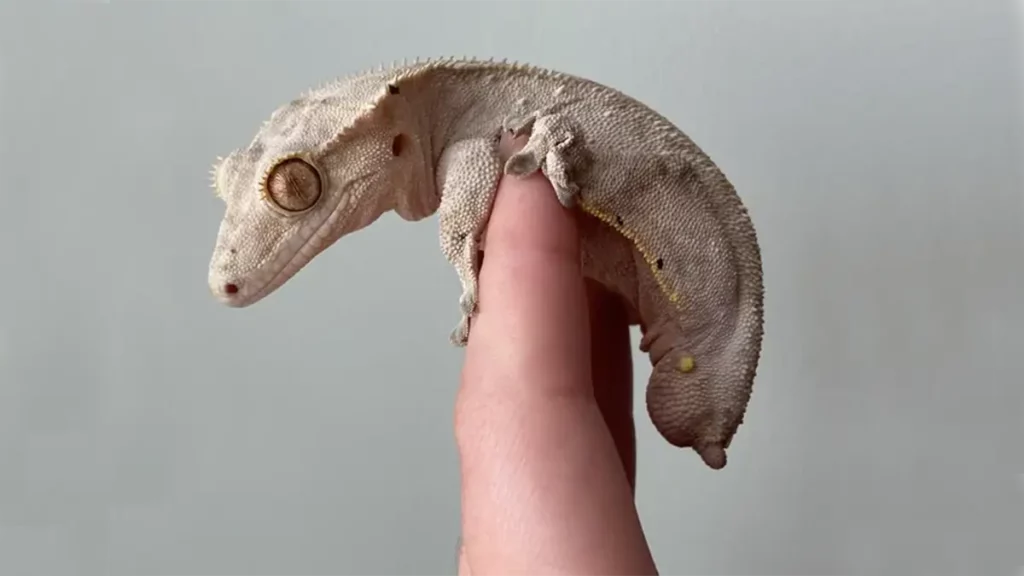
Crested geckos have a special way of sleeping because they don’t have eyelids. Instead of closing their eyes like we do, they have some clever adaptations to make sleeping with open eyes work for them.
First, when they’re asleep, their pupils get smaller and turn into tiny slits. This helps them control how much light enters their eyes, so they can sleep comfortably even without eyelids.
Second, if you look closely, you’ll notice that their eyes sink a little bit into their heads when they sleep. This helps them block out even more light and get a good night’s rest
Further, they are also naturally used to sleeping during the day because they’re nocturnal animals. So, they aren’t bothered by light as much as you might think when they’re sleeping. However, it’s still a good idea to avoid bright lights in their enclosure during their nighttime hours to keep their sleep patterns undisturbed.
Lastly, they have a transparent membrane covering their eyes, which acts like an eyelid in a way. This membrane helps protect their eyes and keep them moist, making it easier for them to sleep with their eyes open.
FAQs
Can Crested Geckos Blink?
No, crested geckos cannot blink as they lack traditional eyelids.
Do Crested Geckos Have Eyelids?
No, crested geckos do not have eyelids.
How Often Do Crested Geckos Sleep?
Crested geckos sleep for approximately 12 hours a day, typically divided into shorter segments.
How Long Do Baby Crested Geckos Sleep?
Baby crested geckos have similar sleep patterns to adults, sleeping for around 12 hours a day.
Do Crested Geckos Sleep at Night?
Yes, crested geckos are nocturnal and primarily active at night.
Do Crested Geckos Sleep All Day?
No, Crested geckos are not strictly diurnal; they may sleep during the day but are more active at night.
Why Is Your Crested Gecko Awake During the Day?
If your crested gecko is awake during the day, it may be due to environmental factors, stress, or illness. It’s essential to monitor their behavior for signs of any issues.
Do Crested Geckos Sleep All Day Long?
No, Crested geckos do not sleep continuously throughout the day but may take several short naps or rest periods to accumulate their daily sleep quota.
Why Do Geckos Lick Their Eyes?
Most geckos can’t blink or close their eyes because they lack movable eyelids. Instead, they have clear, thin membranes called corneas covering their eyes. To keep their eyes moist and clean, geckos use their long, sticky tongues to lick their eyeballs. This helps prevent dirt and debris from bothering their eyes and causing infections. So, their big-looking eyes are mainly due to the absence of eyelids, and they rely on their tongues to take care of their eyes.
Final Words
In conclusion, delving into the captivating world of crested geckos and their unique sleep patterns has been an eye-opening journey. As a passionate observer, I’ve come to understand that these remarkable creatures do indeed sleep with their eyes open. The absence of traditional eyelids is compensated by their remarkable ability to constrict their pupils into small slits, effectively shielding them from excess light.
Moreover, this fascinating adaptation, combined with their slight eye recession while asleep, enables crested geckos to find tranquility in their open-eyed slumber. As I’ve marveled at these intriguing reptiles, it’s clear that nature has equipped them with the tools they need to thrive in their nocturnal world.
So, understanding this aspect of their behavior not only deepens our appreciation for these creatures but also enriches the bond between us and our scaly companions.

